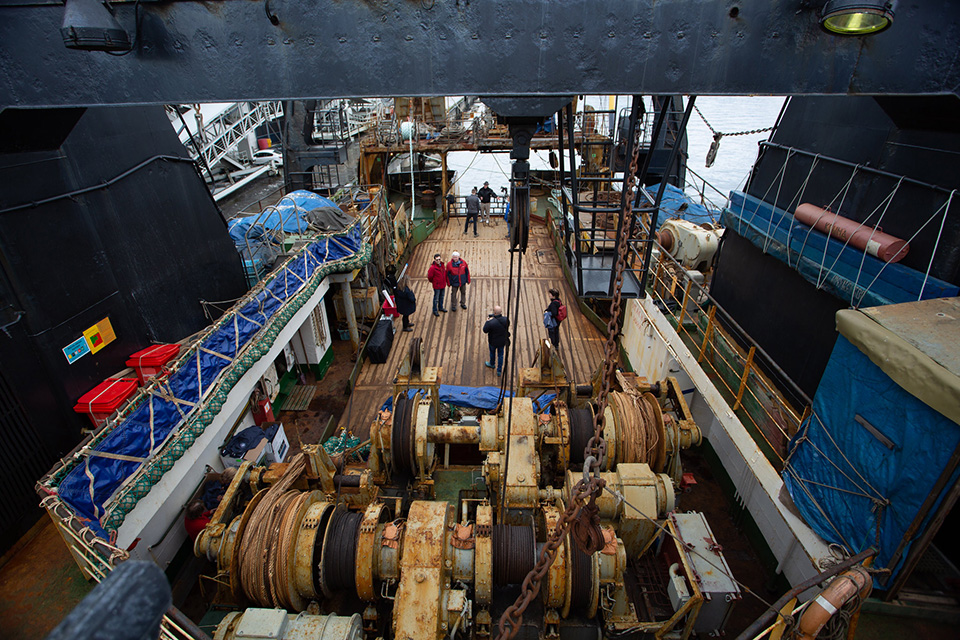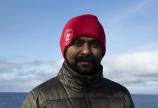UVic geography PhD student joins International Year of the Salmon study
- Anne MacLaurin

Trawling through international waters in search of salmon had its ups and downs according to geography PhD student, Vishnu Perumthuruthil Suseelan, who spent six weeks aboard the Russian vessel, the Professor Kaganovsky.
“The first week was great,” says Vishnu, “but I struggled with seasickness the entire time, so working with above-water hyperspectral sensors was often challenging.”
The Gulf of Alaska expedition set sail on Feb. 16 with 21 international scientists aboard who had one mission in common—to better understand the winter ecology of Pacific salmon. The expedition covered a large area of the northeast Pacific Ocean that is crucial to BC salmon stocks, and is a feeding ground for the majority of Pacific salmon who migrate there in the winter.
For Vishnu, it was an exciting opportunity to focus on using optical remote sensing techniques to identify and characterize the phytoplankton community composition in the Alaskan waters. He was tasked with acquiring in-situ data water spectra in the Gulf of Alaska for validation of ocean colour satellite images.
“Phytoplankton is the basic building block of all life in the ocean,” he explains. “We have never sampled this area before so it was the first time we could assess the habitat condition, abundance, distribution, and the biological status of all five species of Pacific salmon.
The idea of the salmon study originated with Richard Beamish, an emeritus scientist originally with Fisheries and Oceans Canada, and Executive Director of the Pacific Salmon Foundation Brian Riddell. Both led the funding drive that raised $1.2 million to charter the Russian vessel, Professor Kaganovsky.
According to the expedition website, “The major scientific objective is to ultimately discover the fundamental mechanisms that regulate salmon in the northeast Pacific Ocean. The expedition will be the first comprehensive study of the stock abundance, composition and condition of all stocks of all species of Pacific salmon at the end of their first ocean winter.”
“It was a privilege to join the expedition,” says Vishnu. “It was a collaborative exercise so hopefully our data will be used to support stronger salmon populations in the future.”
Vishnu’s supervisor, UVic geographer Maycira Costa, has been using satellite imagery to measure ocean productivity for 15 years out of her SPECTRAL Remote Sensing Lab. Costa will work closely with her grad student to analyze the data collected during the voyage. Their hope is the findings will be used to understand how climate and the changing ocean environment affect salmon survival.
The International Gulf of Alaska Expedition was supported by donations from the BC Salmon Farmers Association, the governments of BC and Canada, Harmac Pacific, the Pacific Salmon Commission, the Pacific Salmon Foundation, the Sitka Foundation and Tony Allard.



